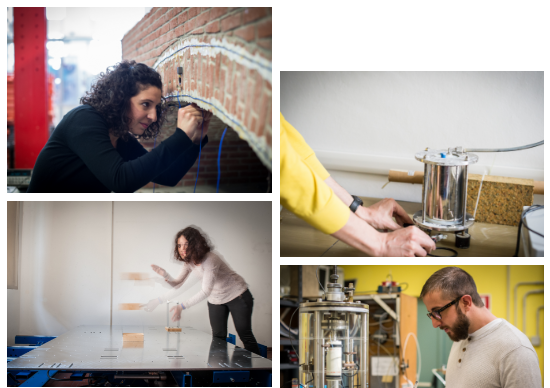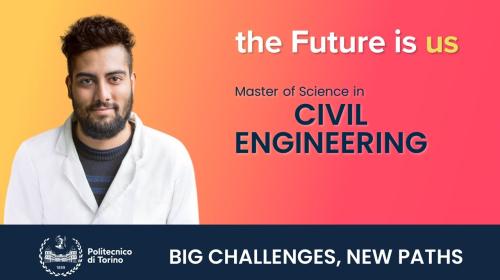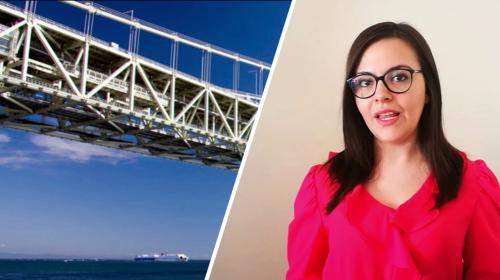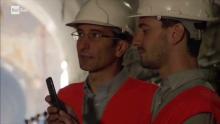The programme curriculum is divided into three learning areas:
The first learning area (BasicEngineering): you will strengthen your knowledgeof basic technical conceptsthat are required in the construction sector by studying theory of structures, materials technology, geomatics, mathematical modelling as well as project management.
The second learning area (Civil Engineering): you will enhance your knowledge in subjects that are more specifically related to Civil Engineering and involving thedesign of structures and infrastructures. These include advanced structural mechanics (with a particular focus on concrete and steel structures), foundations as well as the design and construction of road infrastructures.
The third learning area refers to courses and subjects related to five specialist tracks that provide specific training in important areas of Civil Engineering.
Each track ends with a final project that accounts for a substantial amount of credits. The end product of such projects is a thesis and an oral presentation in front of a panel. Students can choose between designs-type projects or works more oriented towards academic research.

The courses are taught mainly in English.
You will take part in face-to-face lectures, Ateliers, classroom practicals, computer and experimental laboratories, as well as guided exercises, individual activities and group work. In all these settings we put a lot of emphasis on active learning, whereby students are motivated to do things rather than learning only how to do them.






